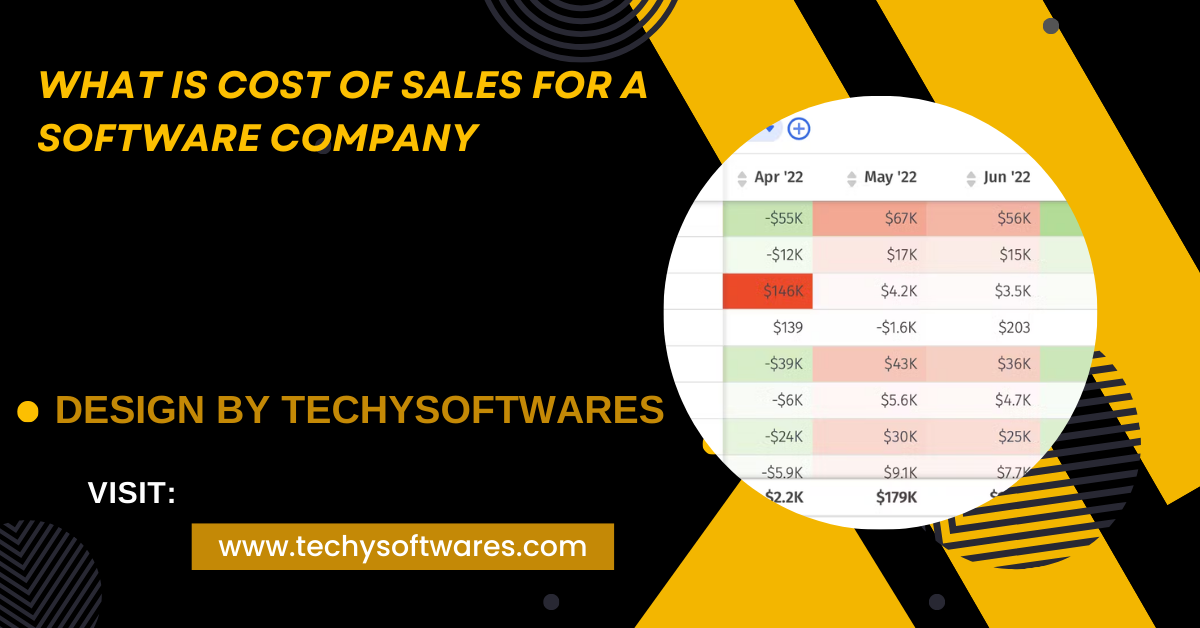Pairing a minor with Software Engineering enhances your skills, broadens career opportunities, and provides interdisciplinary knowledge, making you a versatile and attractive candidate in the job market.
This guide explores some of the best minors to pair with Software Engineering, detailing their relevance, benefits, and career impact.
Why Pair a Minor with Software Engineering?

Pairing a minor with your Software Engineering degree is more than just adding a few extra classes; it’s about building a comprehensive skill set that enhances your professional profile.
Here’s why choosing the right minor matters:
- Enhanced Skill Set: A minor allows you to gain expertise in another field, making you a more versatile and attractive candidate to employers who seek multi-disciplinary talents.
- Interdisciplinary Knowledge: Expanding your knowledge beyond software engineering helps you understand how software interacts with other fields, such as business, data science, or hardware, making you a more effective and innovative engineer.
- Broader Career Opportunities: Certain minors can lead to unique career paths that blend software engineering with other disciplines, such as cybersecurity, UX/UI design, or embedded systems.
- Personal Growth: Exploring subjects outside your primary field can lead to personal growth, greater job satisfaction, and a more fulfilling career as you find new ways to apply your software engineering skills.
Top Minors to Pair with Software Engineering:
Here are some of the most beneficial minors for software engineering students, with a focus on how each can enhance your career prospects:
Mathematics:
Why It’s a Good Fit: A Mathematics minor is one of the most powerful complements to a Software Engineering major. It strengthens your analytical and problem-solving skills, which are crucial in developing efficient algorithms, understanding complex software models, and handling data-driven tasks.
Core Courses: Calculus, Linear Algebra, Discrete Mathematics, Probability, and Statistics.
Skills Gained:
- Enhanced analytical thinking and problem-solving skills.
- Deep understanding of algorithms, optimization, and data analysis.
- Ability to model complex systems mathematically.
Career Impact: This minor is particularly beneficial for roles in data science, machine learning, artificial intelligence, and areas that require rigorous quantitative analysis. Employers in fields like finance, tech, and research often seek software engineers with strong mathematical foundations.
Business Administration:
Why It’s a Good Fit: A Business Administration minor provides valuable insights into how businesses operate, equipping software engineers with knowledge of management, marketing, finance, and operations. This combination is especially useful for engineers aspiring to leadership positions or entrepreneurial ventures.
Core Courses: Principles of Management, Marketing, Finance, Business Law, and Organizational Behavior.
Skills Gained:
- Understanding of business strategies and decision-making processes.
- Ability to bridge the gap between technical teams and business stakeholders.
- Knowledge of project management and financial analysis.
Career Impact: This minor is ideal for those who wish to move into product management, project management, or executive roles in tech companies. It’s also beneficial for engineers interested in starting their own tech business, as it provides a foundation in business operations and strategy.
Also Read: Are There More High Level Embedded Software Engineer Career Paths – A Comprehensive Overview!
Cybersecurity:
Why It’s a Good Fit: Cybersecurity is a rapidly growing field, and software engineers with expertise in security are highly sought after. A minor in Cybersecurity equips you with the skills needed to design secure systems, protect data, and prevent cyber attacks—critical competencies in today’s digital world.
Core Courses: Network Security, Cryptography, Ethical Hacking, Digital Forensics, and Security Policies.
Skills Gained:
- Understanding of security protocols and encryption methods.
- Skills in identifying and mitigating vulnerabilities in software systems.
- Familiarity with cybersecurity regulations and standards.
Career Impact: This minor is highly relevant for roles such as security software developer, penetration tester, and cybersecurity analyst. It’s an excellent choice for those looking to specialize in secure software development or work in industries where data protection is paramount, such as finance, healthcare, and government.
Data Science:
Why It’s a Good Fit: Data Science and Software Engineering are closely intertwined, especially in fields like AI, machine learning, and big data analytics. A Data Science minor enhances your ability to process and analyze large datasets, a skill increasingly important in software development.
Core Courses: Introduction to Data Science, Machine Learning, Big Data Analytics, Data Visualization, and Statistical Methods.
Skills Gained:
- Proficiency in data manipulation, analysis, and visualization.
- Knowledge of machine learning algorithms and predictive modeling.
- Experience with data-driven decision-making and problem-solving.
Career Impact: This minor is beneficial for careers in data engineering, machine learning, and roles where big data plays a crucial part, such as tech companies, startups, and research institutions. Employers value engineers who can build and optimize data-driven applications.
Psychology:

Why It’s a Good Fit: A Psychology minor complements software engineering by providing insights into human behavior, cognitive processes, and user experience. Understanding psychology can enhance your ability to design user-friendly software and create applications that resonate with end-users.
Core Courses: Cognitive Psychology, Behavioral Analysis, Human Factors, Developmental Psychology, and Social Psychology.
Skills Gained:
- Understanding of human behavior and decision-making processes.
- Skills in designing intuitive interfaces and improving user experience.
- Knowledge of psychological principles that can be applied to software development.
Career Impact: This minor is particularly useful for roles in UX/UI design, human-computer interaction, and software development focused on user-centric products. It’s also valuable in developing AI systems that mimic human behavior or assist in therapeutic applications.
Graphic Design:
Why It’s a Good Fit: Graphic Design skills are invaluable for software engineers working in front-end development, game design, or any role that involves visual communication. This minor helps you create aesthetically pleasing and functional software interfaces.
Core Courses: Digital Design, Typography, Visual Communication, Web Design, and User Interface Design.
Skills Gained:
- Proficiency in design software like Adobe Creative Suite and Figma.
- Understanding of color theory, layout design, and visual storytelling.
- Skills in creating engaging user interfaces and interactive elements.
Career Impact: A Graphic Design minor is ideal for software engineers looking to specialize in front-end development, web design, or multimedia applications. It’s also great for those interested in game development or any field where visual appeal is crucial.
Electrical Engineering:

Why It’s a Good Fit: For software engineers interested in embedded systems, robotics, or IoT, a minor in Electrical Engineering provides valuable knowledge of hardware-software integration. Understanding the electronics behind the software can significantly enhance your development capabilities.
Core Courses: Circuit Analysis, Microcontrollers, Digital Logic Design, Embedded Systems, and Signal Processing.
Skills Gained:
- Knowledge of microcontroller programming and hardware interfacing.
- Skills in designing and troubleshooting embedded systems.
- Understanding of electrical components and their impact on software performance.
Career Impact: This minor is particularly beneficial for careers in embedded systems, robotics, automotive software development, and industries where software interacts closely with hardware.
Economics:
Why It’s a Good Fit: Economics provides a solid understanding of market dynamics, decision-making, and data analysis—skills that are increasingly valuable in tech-driven sectors. An Economics minor can help software engineers develop software solutions that address real-world economic challenges.
Core Courses: Microeconomics, Macroeconomics, Econometrics, Financial Economics, and Economic Theory.
Skills Gained:
- Analytical skills in evaluating economic trends and market data.
- Understanding of how economic factors influence business decisions.
- Ability to use software tools for economic modeling and forecasting.
Career Impact: This minor is great for software engineers interested in fintech, economic research, or developing software for financial markets. It’s also valuable for roles that involve data-driven economic analysis or business strategy.
How to Choose the Right Minor:
Selecting the right minor involves assessing your interests, career goals, and the skills you wish to develop. Here’s a step-by-step approach to making your decision:
- Identify Your Interests: Reflect on what topics excite you beyond software engineering. Are you drawn to numbers, design, business, or security?
- Align with Career Goals: Consider where you see yourself in the future. Do you want to lead teams, specialize in cybersecurity, or develop cutting-edge AI solutions?
- Evaluate Course Load: Minors can add significant workload, so ensure that you can manage both your major and minor coursework without compromising your academic performance.
- Consult Advisors: Speak with academic advisors or professionals in the field to get insights into how a minor can influence your career trajectory.
FAQ’s
1. Why should I pair a minor with Software Engineering?
A minor broadens your skill set, enhances your understanding of how software interacts with other fields, and opens up unique career paths.
2. What are some good minors to pair with Software Engineering?
Some beneficial minors include Mathematics, Business Administration, Cybersecurity, Data Science, Psychology, Graphic Design, Electrical Engineering, and Economics.
3. How does a Mathematics minor benefit a Software Engineer?
A Mathematics minor strengthens analytical and problem-solving skills, which are essential for developing algorithms and handling data-driven tasks.
4. Is a Business Administration minor useful for Software Engineers?
Yes, it provides insights into business operations and management, which is ideal for those aspiring to leadership or entrepreneurial roles.
5. What should I consider when choosing a minor?
Consider your interests, career goals, workload manageability, and consult academic advisors to ensure the minor aligns with your professional aspirations.
Conclusion
Choosing a minor alongside your Software Engineering degree is a strategic move to enhance your skills and boost your career prospects. Whether you select a technical minor like Mathematics or Data Science, or opt for complementary fields such as Business or Psychology, the right choice can significantly shape your professional future. Align your minor with your passions and career goals to stand out and thrive in the dynamic field of software engineering.




